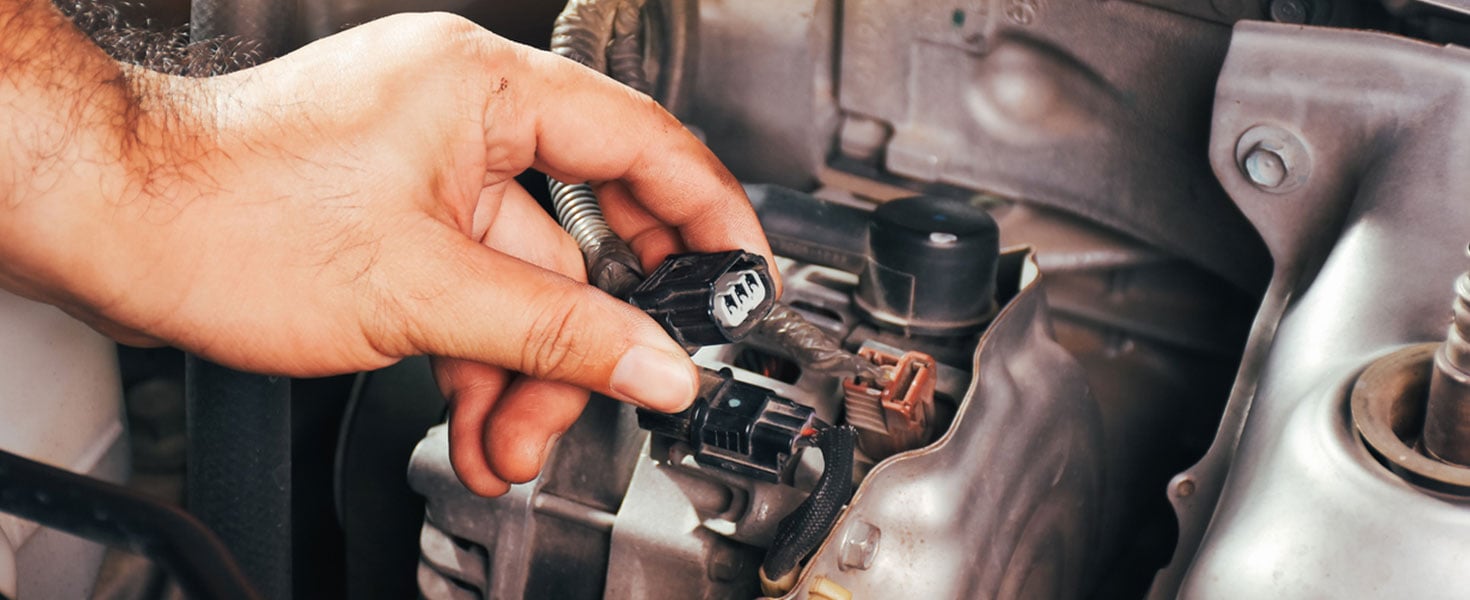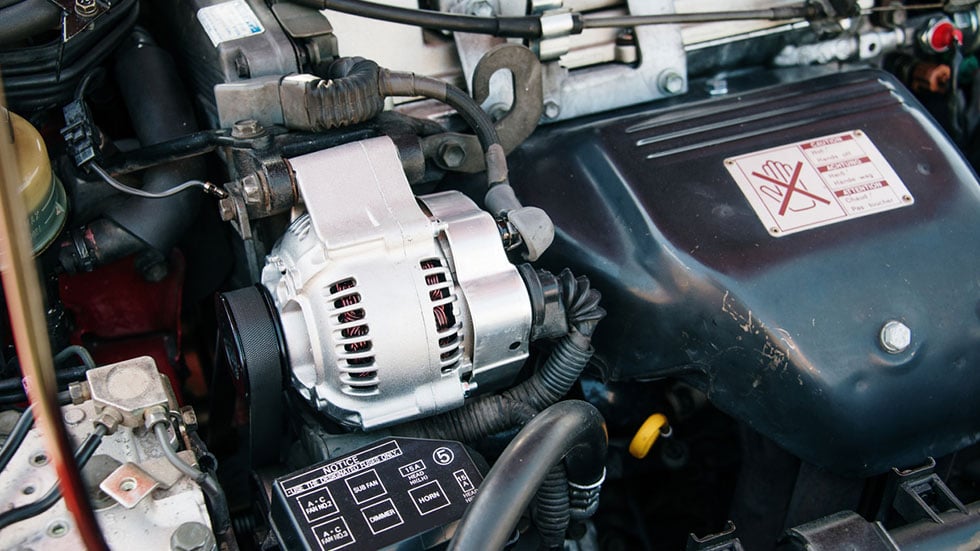Warning Signs Of A Bad Alternator
8 problems that point to a car's alternator, such as strange noises, engine stalls, and more


When it comes to our cars, we're able to diagnose some of the problems ourselves, even if we're not mechanically inclined. Things like low tire pressure, oil change lights, and worn windshield wipers are easy to identify because they stare us right in the face.
But there can be many problems we can't identify, and one of the most serious issues is a bad alternator. When trouble arises with your car's alternator, the symptoms can be varied and confusing. Let's take a look at how to tell if an alternator is bad and discuss some of the signs of a weak alternator.
What is an alternator?
The alternator is a relatively simple component with just a few parts, but it plays a critical role in the daily operation of your vehicle. This small, compact generator attaches to the engine's crankshaft with a belt and uses the rotating mechanical energy of your motor to generate electricity. Electricity generated by your alternator is then sent to power myriad things onboard your vehicle. Everything from your headlights to your windshield wipers are powered by your alternator.
Perhaps most importantly, your alternator is responsible for charging your vehicle's battery as you drive, so that your car will start when you turn the key or press the ignition button.

Warning signs of a bad alternator
An alternator can become bad or stop working for a number of reasons. And, because of its critical role in operating your vehicle, the warning signs of a failing alternator can be quite varied. Take note of these 8 common signs.
Strange Noises:
Drivers often report hearing strange noises, such as groans or whining sounds, coming from under their hood when an alternator fails. Usually this means a belt, bearings, or bushings in the alternator need to be replaced.
Bad Belts: Since your alternator relies on belts to transfer power from the engine, when these belts become cracked or loose, the alternator won't function properly. Get in the habit of visually inspecting your belts from time to time to ensure they're still properly attached and functioning.
Dead Battery:
If your battery keeps dying, this could be a sign that your alternator isn't charging the battery enough to start the car. Don't conclude a dead battery means your battery needs to be replaced. Ask your mechanic to also check your alternator.
Dimmed or Excessively Bright Lights:
A failing alternator may send inconsistent voltages that can result in dimmed or overly bright lights. You may also notice flickering or erratic lights with a failing alternator.
Strange Smells:
Smells like burning rubber or wire can be telltale signs that your alternator is going bad, as internal parts wear out or experience excessive friction.
Battery Light:
The battery light on your dash may come on when your alternator is failing. This is because it's unable to charge your battery to the proper voltage.
Repeated Engine Stalls:
The alternator plays a key role in keeping your car moving, so if you experience repeated stalls while driving, this could be a sign that your alternator needs attention.
Slow or Malfunctioning Accessories:
Much like dimmed lights, you may notice certain electrical accessories, like power windows, being slow to respond. You may also notice that when you turn on multiple accessories at once, they start to malfunction. This is likely because your alternator is going bad and not sending electricity to all the accessories that need it.
. . . . .
While the alternator is a relatively simple component, it plays a major role in the daily operation of your vehicle. When the alternator goes bad, it's not always as obvious as a flat tire or empty gas tank. Taking the time to know and understand the early signs of alternator trouble will help prevent being stranded in a vehicle that won't start.
